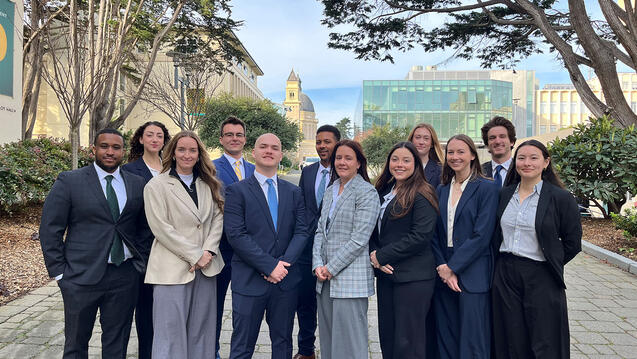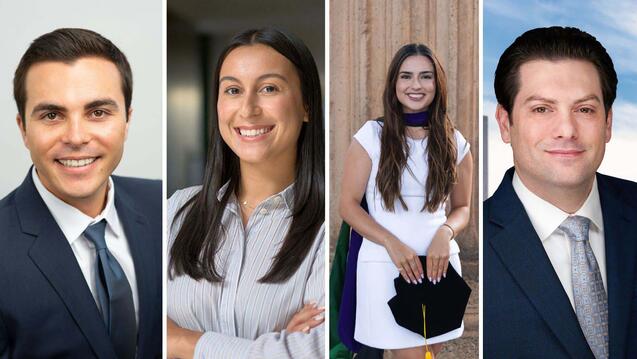
Navigating Name, Image, Likeness: Mit Winter ’05
USF Law alumnus Mit Winter ’05 has emerged as a leading expert in name, image, and likeness (NIL) law for college sports.

A former Division 1 athlete, Winter played basketball at William and Mary before attending USF School of Law in 2002.
Winter's interest in the intersection of college athletics and law was ignited during a sports law class at USF. The class “was helpful with giving a background in some of the issues that arise in college sports these days.” Winter said.
After graduating, he joined Bingham McCutchen, where he worked on cases representing the NCAA, the main body regulating college sports. The role laid the foundation for his extensive career in sports law, where he has represented athletes, agents, businesses, universities, and the Big 12 Conference.
“I’ve had the chance to work on some pretty big cases that have played a role in where we are now in college sports, like the O’Bannon case, and the Alston case.”
The landscape of college sports changed dramatically in 2021 when the Supreme Court unanimously ruled in NCAA v. Alston that the NCAA was subject to antitrust laws and that its athlete compensation limits violate those laws. This decision, in combination with state NIL laws that were set to go into effect shortly after the Alston decision, led the NCAA to take a hands-off approach to NIL and to adopt an NIL policy that allowed student-athletes to profit from their image and likeness with few restrictions.
Winter now collaborates with universities, entities known as NIL collectives (including USF’s Hilltop Club), businesses working in the NIL and college athletics space, and guides prospective student-athletes in navigating NIL policies.
“With my background as a former college athlete and my legal expertise, transitioning into NIL policy was a natural progression,” Winter said.
He is empathetic toward student-athletes, who must now manage complex negotiations about compensation during the recruitment process.
“It’s important for high school and college athletes to understand what to look for in NIL agreements,” Winter advised.
Winter finds joy in working in this dynamic legal area. Just this past May, a settlement in House v. NCAA allowed student-athletes to be paid directly by universities.
“There’s no shortage of legal issues to think about and address right now,” Winter said. “It’s exciting to be part of such rapid change, though it’s a lot to keep up with.”
The School of Law has been working hard to make sure students keep up with developments in emerging areas of law, such as NIL.
Associate Dean Amy Flynn ’04 said, “We constantly refine our curriculum and programs to stay ahead of legal developments. One way we do this is through our experiential programs, like clinics, externships, and the Center for Law, Tech, and Social Good, founded by Michele Nietz, where students work on real-time legal issues and challenges. Our alumni play a crucial role as well through mentorship and on-campus events.”
For those aspiring to enter this legal field, Winter emphasizes the importance of staying current and networking.
“Networking is really important...If there are things you're interested in, join the conversation. Build your name and establish yourself as someone who knows what they're talking about in that space. It takes consistency.”


